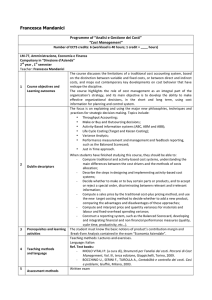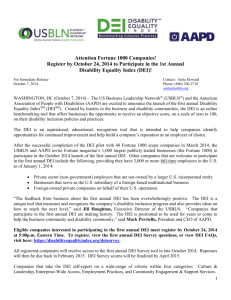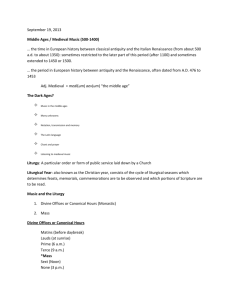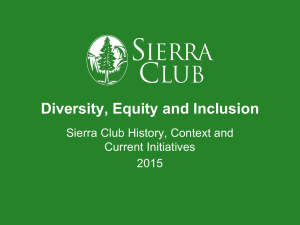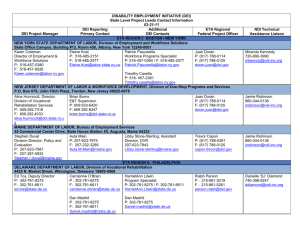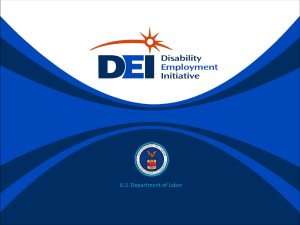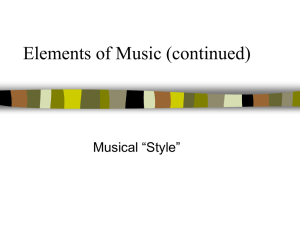Wisconsin Disability Employment Initiative
advertisement
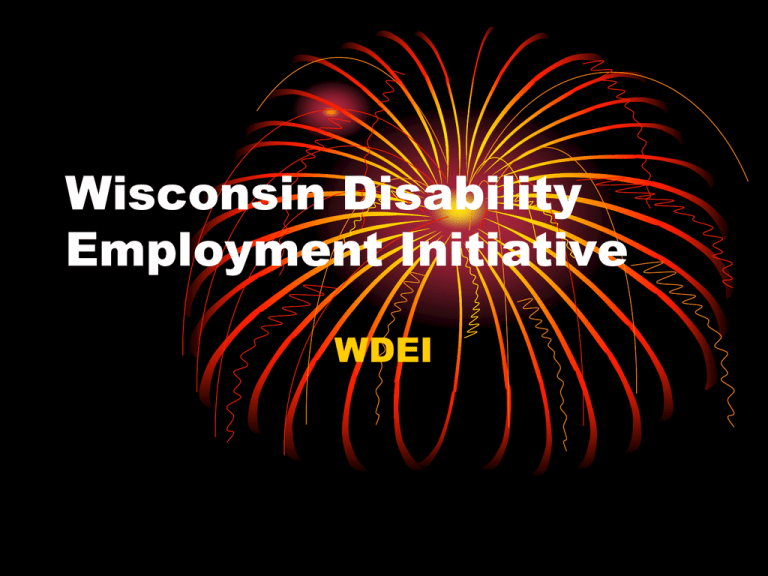
Wisconsin Disability Employment Initiative WDEI DWD DEI Contacts Cathy Crary, Grant Manager Cathy.Crary@dwd.wisconsin.gov Nancy Kargel, High Risk Population Specialist – State Lead NancyP.Kargel@dwd.wisconsin.gov 608 – 266 – 8563 What Is DEI • Funding will • 1) improve educational, training, and employment opportunities and outcomes of youth and adults with disabilities who are unemployed, underemployed, and/or receiving Social Security disability benefits; and • 2) help these individuals with disabilities find a path into the middle class through exemplary and model service delivery by the public workforce system. DPN Model • 1) conduct outreach to the disability community; • 2) promote meaningful and effective access to the One-Stop Career Center system; • 3) establish linkages to employers to increase job opportunities; and • 4) create systemic change through: i) ongoing partnerships and comprehensive, wrap-around services for job seekers with disabilities: and ii) integrated resource teams to blend, braid, and leverage resources across workforce and disability systems. Who Funds DEI What is Wisconsin’s Budget • The Employment and Training Administration (ETA), in coordination with Department of Labor’s (DOL’s) Office of Disability Employment Policy (ODEP). • As it stands Wisconsin received 2.5 million for 3 years Research Driven • Wisconsin will have 6 DRC staff as treatment sites • 5 Workforce Areas will be control groups • DOL determined the areas through a random process. Eval Components • Round 2 States • DEI State Lead Evaluation Orientation Call (Oct 2011) • DEI State Lead One on One Evaluation Call (Nov 2011) • Random Assignment Call (Nov-Dec 2011) • Site Visits (Spring 2012) • Assist Grantees in Preparing for the DEI Data System and WIASRD and W-P Data (Spring-Summer 2012) • Data Sharing Agreement Process Calls (Summer 2012) More Eval • A comprehensive implementation/process, outcome, and impact study. • Implementation: Collection of information on systems change and the strategies implemented by each of the DEI grantees (Site Visits/Telephone Interviews). • Outcomes: Focus on customer-level outcomes, based on administrative data (WIASRD, W-P, DEI Data System). • Impact: Focus on comparing DEI sites with comparison sites (WIASRD, W-P, DEI Data System). Assigned Areas?????? Random assignment assures that the DEI pilot and the comparison group are equivalent in terms of all extraneous variables. In other words, the characteristics of WDBs in both groups are the same. The comparison group serves as the counterfactual: What would have happened in an equivalent group of WDBs in the absence of the DEI? What Are DRCs • In the treatment areas will deploy Disability Resource Coordinators to improve coordination and collaboration among employment and training programs carried out at a state and local level, as well as to expand the use of Employment Networks under the Ticket to Work program. DRCs will work to build effective community partnerships that leverage public and private resources to better serve individuals with disabilities and improve employment outcomes. Areas of Focus Must Choose at Least Two • • • • • • • Integrated Resource Teams Blending and Braiding of Funds Customized Employment Self Employment Youth or Adult Asset Development Partnerships WDEI Focus • • • • • Adults Asset Development Partnerships Integrated Resource Teams Ticket to Work – Employment Network Who are the Players • Internal team includes DET and DVR staff • WRC is our Advisory Entity • State agencies, DCF, DHS, Tech College and DOC • Other IL Centers, WIA 166, CBOs What is an IRT • IRT is a promising practice identified by the DPN Initiative whereby a team comprised of representatives from different agencies and service systems (both general workforce and disability-specific) coordinate services and leverage funding to meet the employment needs of an individual job seeker with a disability. Asset Development • Asset development strategies include various approaches to enhance long-term economic self-sufficiency, including individual development accounts, financial literacy training for youth and adults, SSA PASS plans and other work incentives, the Earned Income Tax Credit (EITC) and other tax provisions, and self-directed benefit and resource accounts, among others. Partnerships • The Department requires that applicants use partnerships and collaboration as one of its strategies under this SGA. Applicants should demonstrate that the proposed project will include coordination with a variety of partners that impact the ability of adults and youth with disabilities to successfully participate in education, training, and employment opportunities. What is DVR’s role? • Provide Senior Leadership. • Participate here Appropriate on IRT teams. • Provide Technical Assistance; Partnership Plus, Benefit Counseling. • Assist the Integration into Business Service Teams. Project Deliverables • Asset Development • Benefit Counseling • Employer Education and VR Business Service Teams • Coordination with WIA 166 • Mental Health Education • Service to Offenders • TANF Coordination • Vets returning to the workforce • Staff Training Ticket to Work Employment Network Status • • • • • • Application Pending – Auto Approval Initial Activities are to in-reach Pilot with Vets Expand to WIA And Wegnar-Peysar Implement Benefit Counseling plan Upon success begin out reach activities. FAQ • What is the difference between the DPN and the DRC? • Can other WDAs receive funds for a DRC? • Explain more about the DET EN Model?
